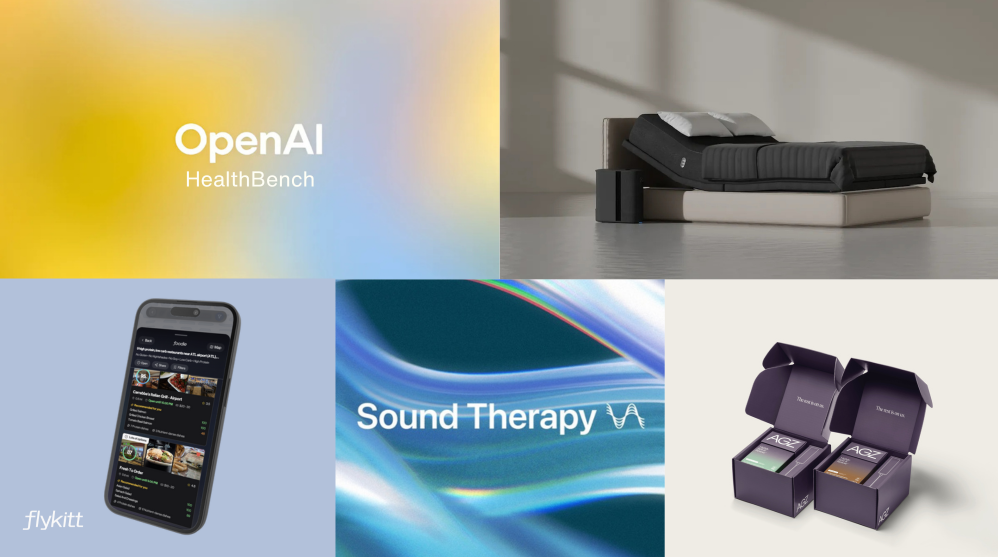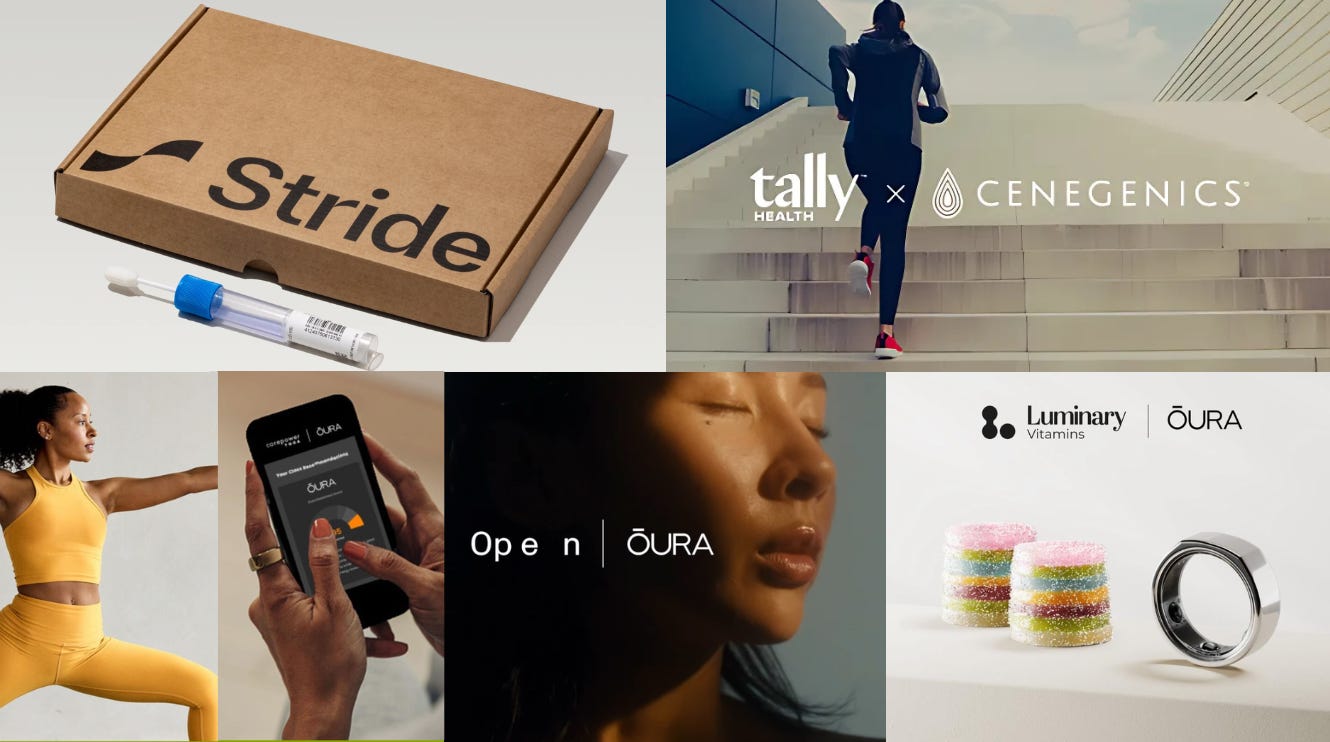Sports for a New Kind of Human
Enhanced Games, AI diagnostics, Alzheimer’s blood tests, and Gut-tracking toilets. Health is accelerating. Smarter tools, faster insights, and your body as the new interface.
Hope you all had a great weekend!
Last week, I finally had the chance to dive deep into the insights from the Longevity Med Summit in Lisbon.
Instead of a traditional recap, I synthesized the insights, connecting expert perspectives, mapping key topics, and spotting patterns, to better understand where the field stands today, and where it’s headed next.
There’s often so much noise, we sometimes forget how much real progress is actually being made. But when we zoom out, the signals become clear.
Here are a few takeaways that stood out:
→ Longevity starts before conception.
→ Women’s health is finally being recognized as foundational, not secondary.
→ Oral inflammation is a silent driver of aging.
→ Fasting isn’t just a trend, it’s one of the few interventions proven to support regeneration.
→ Architecture is starting to sync with our biology with buildings designed to align with our circadian rhythms, air quality needs, and emotional states.
The report includes insights from experts like Dr. Miguel Stanley (White Clinic), Dr. Felice Gersh, Chris Moore (Nordic Labs), Anna Bjurstam (Six Senses), Simone Gibertoni (Clinique La Prairie), and many others, pointing toward a future of care that is more measurable, personalized, and deeply human.
If you landed here thanks to the report, welcome, and thank you.
And if you haven’t had chance to read it yet, I hope it offers something useful.
🔗🎧 Read the full report or listen to the podcast summary
This week, we’re exploring:
Latest Drops
Products:
→ AI diagnostics (OpenAI HealthBench) · Sleep tech (Pod 5) · Sound therapy (Apple) · Travel nutrition (Flykitt) · Recovery supplements (AG1)
Spaces:
→ Luxury retreats (Scorpios x Remedy) · New clinics (Biograph) · Longevity hubs (Seveno) · Mindfulness spas (Rituals)
Partnerships:
→ Stride x UNITY · Tally x Cenegenics · ŌURA x CorePower · ŌURA x Open · ŌURA x Luminary
Rundown
→ Enhanced Games · Alzheimer’s blood test
Investor’s Edge
→ AI toilets (Throne) · Bio-acquisitions (23andMe) · Cancer breath tests (SpotitEarly) · Digital health platforms (Strava, Hims & Hers)
⚡ Latest Drops
Products

OpenAI's HealthBench: OpenAI announced HealthBench, a new tool that puts AI through real medical scenarios to see how well it thinks like a doctor. It’s built to test whether AI can truly help make life-saving decisions.
Eight Sleep’s Pod 5: Eight Sleep’s latest Pod now includes respiratory tracking and even smarter cooling. It’s like having a sleep coach in your bed, making adjustments while you rest.
Flykitt's AI Nutrition App: A travel-friendly nutrition app that personalizes hydration and meals based on your location, timezone, and schedule.
Apple Music's Sound Therapy: Their playlists are tuned with sound healing frequencies to boost focus, calm the mind, and improve sleep, built into your daily rhythm.
AG1's AGZ Supplement: AG1 introduces AGZ. A clean, science-backed nighttime blend of magnesium, GABA, and adaptogens to help you wind down and recover while you sleep.
Spaces
Scorpios & Remedy Place Retreat: Remedy Place is teaming up with Scorpios to host an immersive retreat in the Aegean. Think IV drips, breathwork, and ancient wellness rituals by the sea, designed to reset body and mind.
Biograph's NYC Clinic: Biograph just opened its doors in New York. With advanced diagnostics and spa-like design, it’s raising the bar for what personalized, preventive healthcare should feel like.
Seveno Capital's Singapore Hub: Seveno is launching a flagship wellness hub in Singapore, combining longevity science with luxury recovery experiences. It’s Asia’s latest leap into the future of proactive health.
Rituals' Mind Oasis (UK): Rituals is bringing its spa-meets-mindfulness experience to the UK, designed for deep relaxation.
Partnerships
Stride x UNITY Fitness: Partner to bring real-time biometrics into group fitness, blending personal health insights with collective training environments.
Tally Health x Cenegenics: Epigenetic data meets physician-led aging programs.
ŌURA x CorePower Yoga: Yoga meets recovery tech. CorePower instructors now use Ōura data to tailor sessions based on how your body’s actually feeling.
ŌURA x Open: Breathwork goes biometric. This pairing lets you use real-time recovery data to guide how (and when) you breathe.
ŌURA x Luminary: A holistic fertility bundle: precision supplements, wearable tracking, and expert guidance.
ŌURA is having a moment. With three major partnerships in a week, they’re building a clear roadmap: become the feedback layer for personal health. From recovery to mindfulness to fertility, ŌURA is positioning itself as the biometric interface between lifestyle and health intelligence.
Expect more brands to build health ecosystems, not just products.
🏃🏽♀️ Rundown
Superhuman Sports: The First Enhanced Games Land in Las Vegas
Picture this: athletes who use science to push the limits of the human body. That’s the Enhanced Games, a radical new sporting event where performance enhancement isn’t punished, it’s required.
We’ve all heard of athletes being banned for doping. What if instead of being disqualified, enhancement was the ticket in?
I listened to the Mr. RAD Podcast episode with Aron D’Souza, the founder of Enhanced Games. This isn’t just a sporting event, it’s an experiment turned real. Aron isn’t aiming to replace the Olympics. He’s building a parallel arena that dares to push the human limits, redefining taboos, and testing how far we're willing to go when the rules are rewritten.
Why it’s so provocative:
It flips the anti-doping narrative, and challenges what we believe is "natural" performance.
It opens up questions that hit deeper than sport: What does it mean to be human when biology becomes modifiable?
Every athlete must be guided by doctors and health experts. The aim isn’t chaos, it’s exploration. Legal and ethical lines still exist. No cyborg limbs, not shortcuts, just humans at the edge of what’s biologically and technologically possible.
How far is too far when optimizing the human body? The drive to enhance, to overcome our limits, is nothing new. What’s new is the speed, the precision, and the scale.
Fifty years from now, what we call “human” may look very different. And that evolution is already underway…
Trends to Watch:
Bio-optimization in athletics
Radical transparency in sport
Enhanced performance
Alzheimer's Blood Test Gets FDA Approval
Lumipulse is the first FDA-approved blood test for Alzheimer’s diagnosis.
This simple blood test can spot key proteins (p-Tau and Aβ42) associated with Alzheimer’s, making diagnosis less invasive and more accessible than ever. That means earlier intervention, fewer misdiagnoses, and a chance to slow progression.
As blood-based diagnostics replace spinal taps and scans, we may soon catch Alzheimer’s in routine checkups.
Trends to Watch:
Neurodiagnostic startups
At-home screening tools
Preventive neurocare
💳 Investor's Edge
Throne Raised $4M to analyze gut health via AI-powered toilet add-on.
WellTheory raised $5M for AI-based autoimmune care platform.
Strava acquires The Breakaway; valuation hits $2.2B.
Geviti longevity startup raises $8.5M in Seed Round
Hims & Hers adds $1B in convertible notes from Morgan Stanley & JP Morgan.
Sprinter Health raises $55M to expand its at-home healthcare service
Valerie raises £514K for perimenopause support platform.
SpotitEarly enters U.S. market with $20M+ with at-home breath test for early cancer detection
Regeneron to Buy 23andMe out of bankruptcy for $256M
L’Oréal participated in the $13.8M investment round in the biotech startup Veminsyn.
The integration of diagnostics, at-home testing, and longevity is forming a new strategic category: biological data infrastructure. Startups are turning everyday outputs (breath, stool, urine, saliva, epigenetic markers) into structured, monetizable solutions. The momentum is in real-time, passive systems that unlock scale and engagement.
This signals a shift toward platforms that lower the cost of early detection, scale personalized care, and generate continuous datasets.
But the opportunity also brings challenges, like turning fragmented data into reliable, privacy-first, and truly personalized health intelligence that both consumers and clinicians can actually trust and use.
🔎 Connecting the Dots
Personally, I think we’re on the edge of a much-needed reset. We've spent years collecting health data without really knowing what to do with it. But now, tools are finally catching up and turning that noise into actionable insights.
The possibility of being more in sync with our own biology is truly exciting. Less guessing. More knowing. And maybe, finally, a healthcare system that’s built around people.








